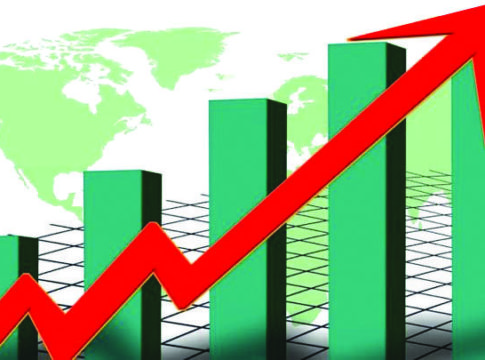Over the past month, inflation rocketed in Egypt to go beyond 20%, while on the other hand, the pound’s value has devalued, causing a havoc of reports contradicting the economic policy set forth by the Government since 2014 for reliance on borrowing to finance mega projects like the Administrative Capital and expansion in construction and infrastructural projects rather than investments in health, education and other sectors.
To set facts straight, Egypt’s economic policy has been based on avoiding bankruptcy and setting foundations for a sustainable economy.
That essentially started by an Energy sector that was practically deteriorated and falling apart, developing successful projects and solutions went beyond developing the sector and towards setting grounds for Egypt being a regional energy hub in the near future, in 2023 FDI’s highly expected are those within the Energy field along with massive renewable energy projects in the pipeline.
Expansion into infrastructural projects was not a luxury item on Egypt’s agenda, it was a must to allow for a wider network connecting the country, along with needed expansions and adjustments to the current transport network that lacked serious developments for over a decade.
The Country has invested in developing the SC logistics and industrial corridor (bringing current revenues to exceed 50% over 2015 indicators prior to expansion of the Suez Canal corridor), Noting that the full utilization of the corridor is still in the process of development, but once established companies, industries, warehouses and operations will stand out being located within the most important route for world trade.
The country invested in developing 23 smart cities including the New Administrative Capital and the new Alamain city. Such investments precisely reflect a calculated development plan towards the new republic. Construction and housing projects is not a luxury for the largest Arab population, yet the government has maintained its focus on strategic projects extended to accommodate its growing young population beyond the currently heavily populated and suffocating cities.
Though the Russia-Ukraine war has impacted the world and specially Egypt negatively due to the increased Wheat cost which was mostly imported from Ukraine and Russia, causing rising food prices & impacting the tourism sector in Egypt, curbing the usual influx of Russian and Ukrainian tourists to the country. It has impacted the country positively in increasing incentives for local wheat production and increasing revenues for wheat producers along with further investments into Toshky for massive Wheat production, such developments though induced by the war, reflect a sound Government working on setting sustainable solutions to challenges faced.
Furthermore, the country has worked progressively on encouraging expansion of agricultural production, along with quality upgrading, indicators of exports increasing over the year reflect the promising growth of the sector, yet technology implementation for higher quality and production remains an opportunity for serious investors.
Challenges that face Egypt are met with a serious intention and determination, on the level of the country’s national security, billions of dollars were invested in purchasing weapons over the past eight years and developing the army’s capabilities through regular training and development to stand safeguarding the country’s national security against any threats.
Egypt’s Government realises the main challenges at hand on the industrial level, though the complexity of the industrialization lies within two sectors, the raw materials and products needed for local industries and the other imports of products required by the market (with no current local replacement) and luxury items. Over the past year, the Government has concentrated on developing industrial zones and setting funds for supporting young entrepreneurs, along with related consultancy support. Yet, the challenge of connecting the enterpreneurs towards related industies is slowly getting into focus.
These measures along with other measures related for integrating the citizens towards utilising the opportunities at hand, encouraging importers of a product towards being manufacturers, integrating those working under the hidden economy umbrella towards the country’s official stream to reflect the country’s actual GDP, such are the crucial challenges that face Egypt and that require a common understanding that now is the time to move towards positively sharing the vision for achieving our new cities, utilizing the infrastructural investments and taking our integrated role within this equation for positively impacting our life and the country’s future.
Cohesion of the state and society in Egypt has been forever regarded as unimaginable in facing challenges, yet over years and lately the 1973 war, it is vivid that when Egyptians are faced with challenges that may seem impossible, Egyptians proved not only capable, but capable beyond expectations.


